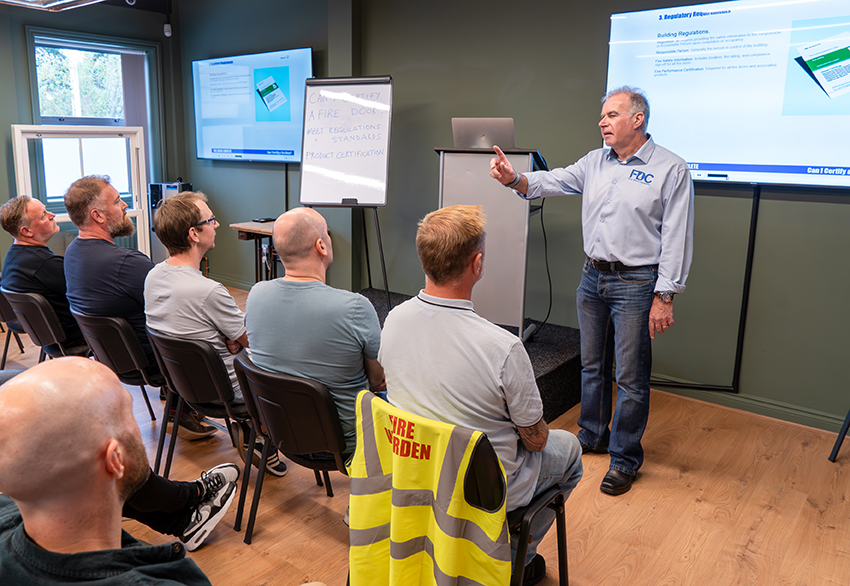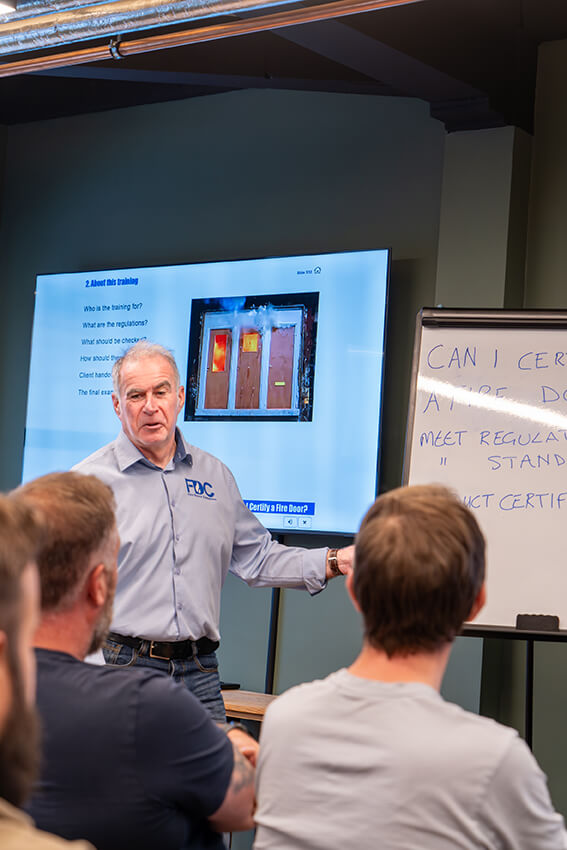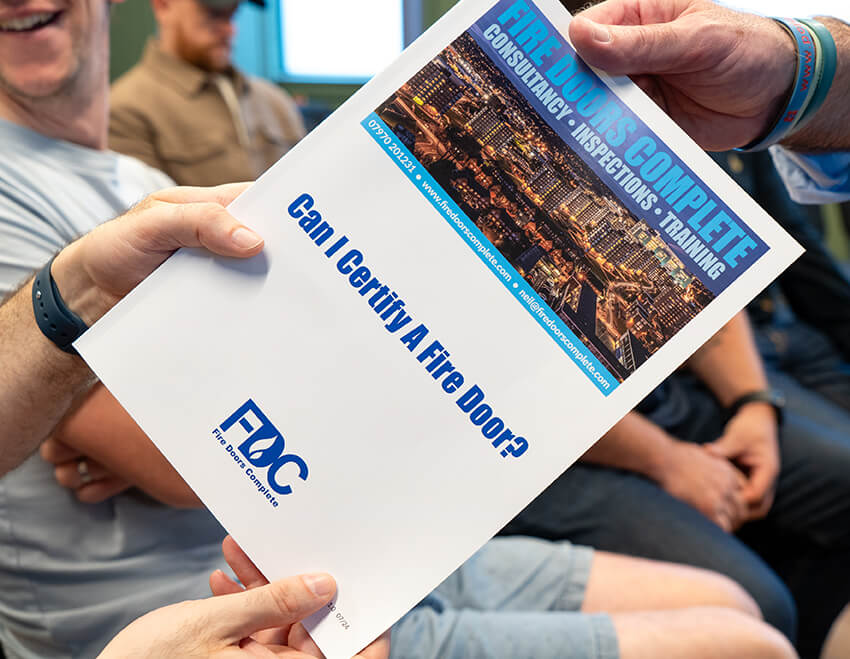In recent years, the number of available fire door inspection courses in the UK has grown steadily. On the face of it, this is encouraging. Increased choice can improve quality through competition, assuming the training on offer is grounded in best practices and further research rather than driven purely by price. However, building control officers and others in the industry face the challenge of navigating this interwoven selection of options. But with so many courses now on the market, how can you tell which one will equip you with the skills, understanding and credentials you really need?

The first point to note is that, surprisingly, there is currently no legal requirement for an individual to undertake specific training before they install, maintain or inspect a fire door. However, the drive towards demonstrating competency, including ongoing repair and earning CPD hours, is growing and is being welcomed by many in the sector. Proof of qualification is becoming a regular client requirement, even if the law has yet to catch up.
Look for courses that balance theory with practice
A good fire door inspection course must include more than just the basics. While even awareness courses should explain the role of the fire door in fire and smoke compartmentation, proper inspection training should go much further. The best programmes cover fire door regulations, fire door testing requirements, building regulations, inspection requirements, legal obligations and the technical aspects of door assemblies, including door hardware and egress functionality.
Where practical training is offered alongside remote or classroom-based study, it’s usually a good sign. A theory-only course, particularly one that is entirely online, may suit those with years of experience. For most people, however, it is practical assessment that helps turn knowledge into competence and aids in knowledge consolidation, often guided by industry experts.

Fire Doors Complete, for example, provides structured inspection training that combines detailed study materials with a two-day practical module. The course is aimed at professionals inspecting timber-based fire doors and covers everything from identifying door construction to assessing compliance when documentation is missing. This approach ensures learners are not just working through theory but applying it in real-life scenarios under expert supervision.
Credentials matter
Inspecting fire doors is a serious responsibility that directly affects the safety of building occupants, including safety inspectors and fire risk assessors. Before enrolling, check the trainer’s qualifications and industry involvement. Reputable providers will be transparent about their background and the standards their courses meet.
Courses recognised by FireQual or similar bodies provide assurance that you’re gaining a qualification valued across the built environment. Fire Doors Complete’s inspection training, for instance, covers robust inspection legislations and leads to a five-year formal certification and is increasingly accepted as proof of competence by clients and employers.
Course delivery and post-training access
Some people learn best in a training centre, while others prefer remote study or a preferred location for their training. The key is to find a course that matches your learning style without compromising the content or support, including understanding the importance of different types of fire doors. Reputable providers will offer help when you need it, even during remote study, and maintain access to course materials after successful completion. This is essential – even a qualified fire door inspector will need to revisit certain details from time to time.

Final thoughts
Choosing the right fire door inspection course is NOT about ticking a box. It’s about equipping yourself, including site managers, to do the job safely, competently and with confidence, particularly in examining door closers. Look for programmes that offer practical training, recognised credentials, clear support and proper course resources.
Training from organisations like Fire Doors Complete, which blend first-hand experience with practical skills, technical rigour, and clear post-course guidance, provides a solid foundation. As a leading training provider, whether you’re a facility manager, a fire door installer, or an independent inspector, the right training helps ensure you meet your responsibilities and protect those who rely on the buildings you maintain.
For more information about our training courses, contact us here.
Frequently asked questions
How do I become a certified fire door inspector?
To become a certified fire door inspector, you typically need to complete a specialized training course that covers the standards and regulations related to fire doors. After completing the course, you may need to pass an exam to demonstrate your knowledge and skills. Additionally, gaining practical experience in inspecting fire doors and understanding their components is essential. Once you meet the necessary requirements, you can apply for certification through a recognized organization in your area.
What is the cost of a fire door inspection course?
Generally, the cost can vary based on factors such as the training provider, location, and course duration. It’s advisable to research different options and consider any additional materials or certifications included in the program.
Are there online options for fire door inspection training?
Yes, there are various online courses available that provide comprehensive training on fire door inspections. One recommended option is the Fire Door Complete programs, which offers in-depth resources and certification to ensure you gain the necessary skills and knowledge for effective fire door inspections.
Can I book a fire door inspection course for a group or company?
Yes, you can book a fire door inspection course for a group or company! Our brand offers tailored training solutions that cater specifically to corporate needs. We understand the importance of ensuring that your entire team is well-versed in fire safety regulations and practices. By facilitating group training sessions, we not only provide comprehensive education on fire door inspections but also foster teamwork and collaboration among participants. Our experienced instructors will work with you to develop a training program that fits your schedule and meets your organization’s specific requirements.
How long does a typical fire door inspection course take to complete?
A typical fire door inspection course takes about 4 to 8 hours to complete, depending on the provider and the depth of the material covered.
What are the entry requirements for enrolling in a fire door inspection course?
To enroll in a fire door inspection course, candidates typically need to have a basic understanding of fire safety principles, and it is recommended that they have prior experience in the construction or safety industry. Some courses may require participants to hold specific certifications, such as a fire safety or building inspection qualification, while others may accept individuals with a strong interest in fire protection. Additionally, participants should be prepared to engage in hands-on training and assessments to ensure they can effectively inspect and evaluate fire doors.
